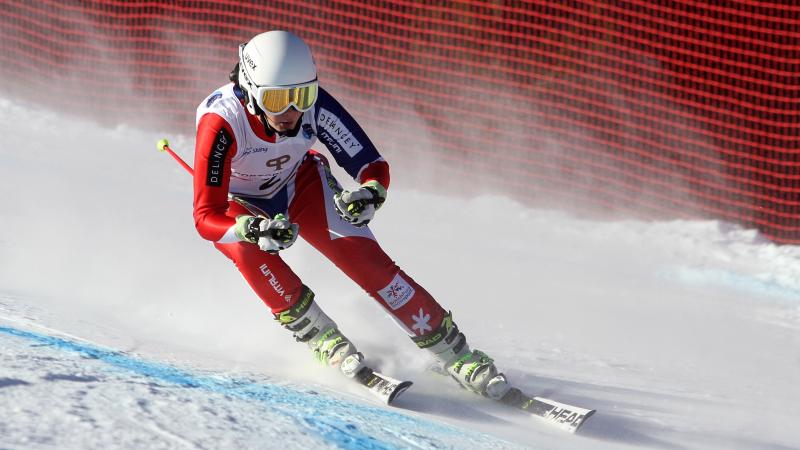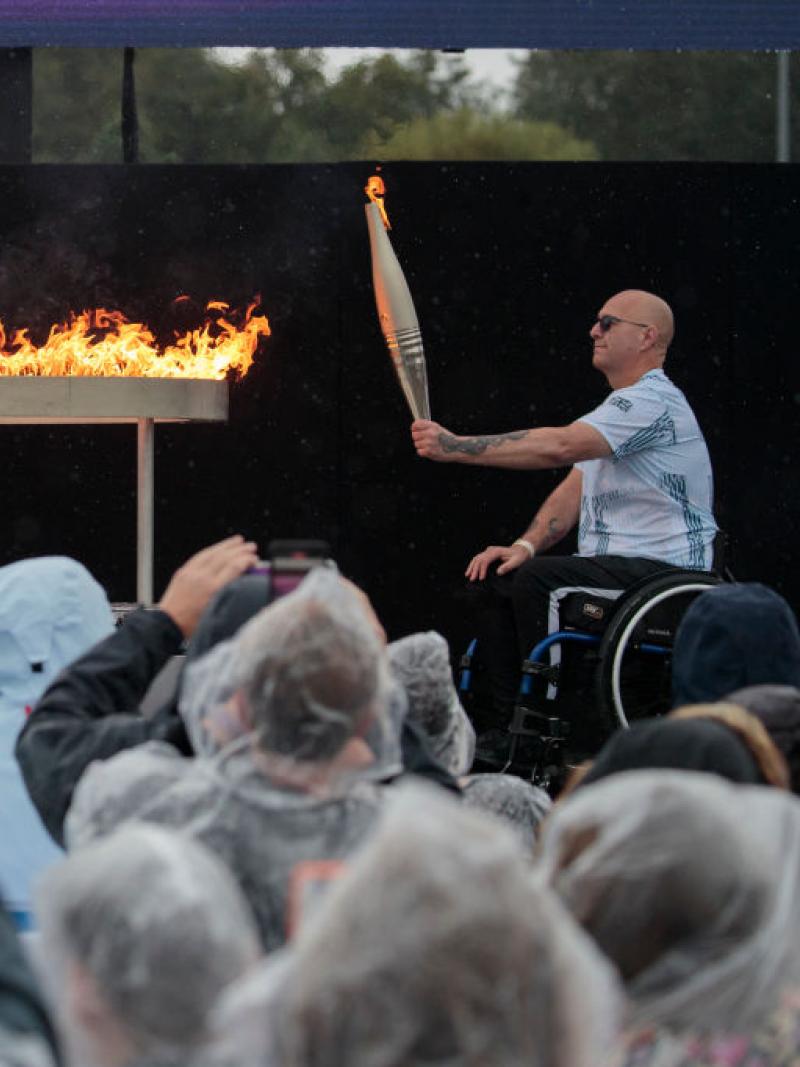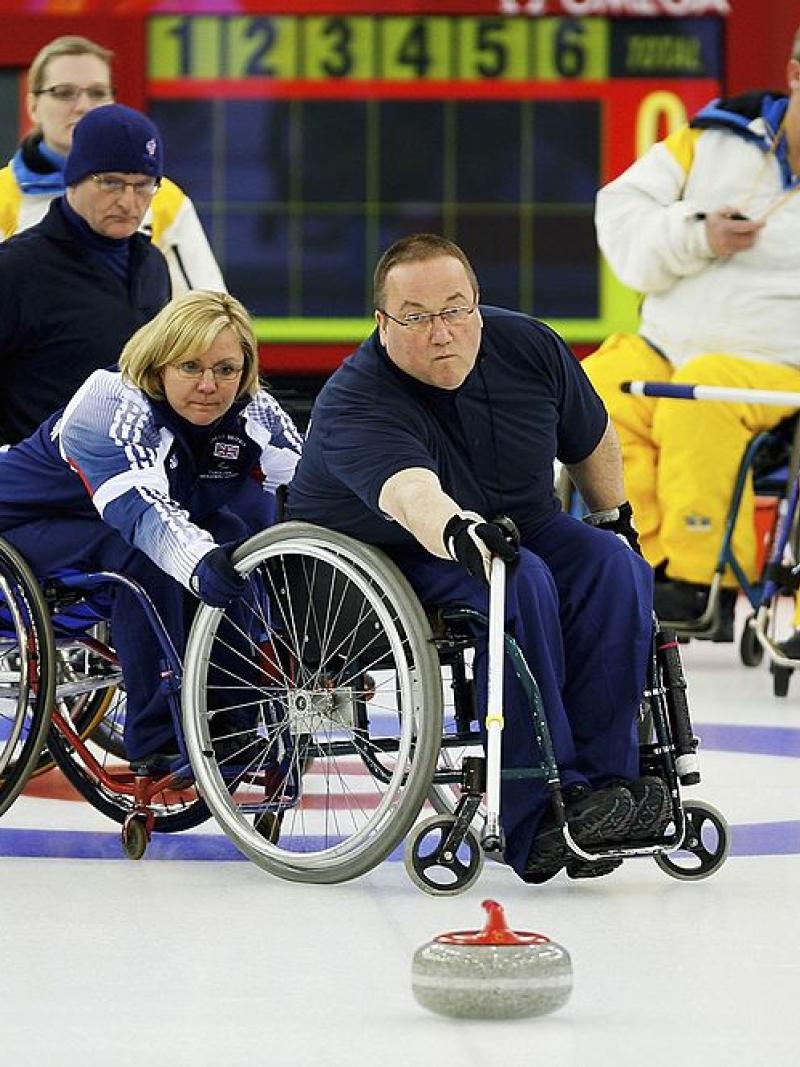
Encouraged by her successful previous performances, alpine skier Millie Knight reached the Paralympic podium for the first time at PyeongChang 2018.
The Brit claimed silver in both the women´s downhill and super-G vision impaired events alongside guide Brett Wild. She also ended second in the overall World Cup rankings.
Four years before, Knight had become the youngest British athlete to compete at a Winter Paralympics when she took to the Russian slopes at Sochi 2014 at the age of just 15.
She was also named Great Britain’s flagbearer at the Opening Ceremony. Even though she left Sochi without a medal, Knight was only starting a so far short but fruitful career.
In 2015, she won silver in the giant slalom and bronze in the slalom at her first World Championships in Panorama, Canada.
The 2017-18 season was her most successful. Knight took her country’s only gold medal at Tarvisio 2017 in the downhill. She followed that up with three silvers in the giant slalom, slalom and super-combined.
She also finished first in the super-combined and downhill World Cup rankings, finishing second in the overall rankings behind her main opponent Henrieta Farkasova of Slovakia.
Knight lost the majority of the sight in both eyes due to an infection at a young age. She took up skiing at age seven while on holiday in Meribel, France, encouraged by her mother, who also became her first guide.
In 2013, she began training with the national Paralympic development squad. She was named the 2014 Woman of the Year in Canterbury, England.
Results
| Unit | Date | Rank |
|---|
| Event | Medal | Unit | Date | Rank |
|---|---|---|---|---|
| Women's Slalom Visually Impaired | Final Round | 2014-03-12 | 5 | |
| Women's Giant Slalom Visually Impaired | Final Round | 2014-03-16 | 5 |
| Event | Medal | Unit | Date | Rank |
|---|---|---|---|---|
| Women's Giant Slalom VI | Race 1 | 2015-03-08 | 2 | |
| Women's Slalom VI | Race 1 | 2015-03-10 | 3 |
| Event | Medal | Unit | Date | Rank |
|---|---|---|---|---|
| Women's Downhill VI | Race 1 | 2017-01-25 | 1 | |
| Women's Super-G VI | Race 1 | 2017-01-26 | 9999 | |
| Women's Super-Combined VI | Race 1 | 2017-01-28 | 2 | |
| Women's Giant Slalom VI | Race 1 | 2017-01-30 | 2 | |
| Women's Slalom VI | Race 1 | 2017-01-31 | 2 |
| Event | Medal | Unit | Date | Rank |
|---|---|---|---|---|
| Women's Downhill Visually Impaired | Final | 2018-03-10 | 2 | |
| Women's Super-G Visually Impaired | Final | 2018-03-11 | 2 | |
| Women's Super Combined Visually Impaired | Final | 2018-03-13 | 4 | |
| Women's Giant Slalom Visually Impaired | Final | 2018-03-14 | 7 | |
| Women's Slalom Visually Impaired | Final | 2018-03-18 | 3 |
| Event | Medal | Unit | Date | Rank |
|---|---|---|---|---|
| Women's Downhill VI | Race 1 | 2022-01-14 | 9999 | |
| Women's Super-G VI | Race 1 | 2022-01-15 | 3 | |
| Women's Super-Combined VI | Race 1 | 2022-01-17 | 1 | |
| Women's Super-G VI | Race 1 (from SC) | 2022-01-17 | 1 | |
| Women's Giant Slalom VI | Race 1 | 2022-01-20 | 8 | |
| Women's Slalom VI | Race 1 | 2022-01-22 | 6 |
| Event | Medal | Unit | Date | Rank |
|---|---|---|---|---|
| Women's Downhill VI | Final | 2022-03-05 | 3 | |
| Women's Super-G VI | Final | 2022-03-06 | 4 | |
| Women's Super-Combined VI | Final | 2022-03-07 | 4 | |
| Women's Giant Slalom VI | Final | 2022-03-11 | 9 | |
| Women's Slalom VI | Final | 2022-03-12 | 8 |







